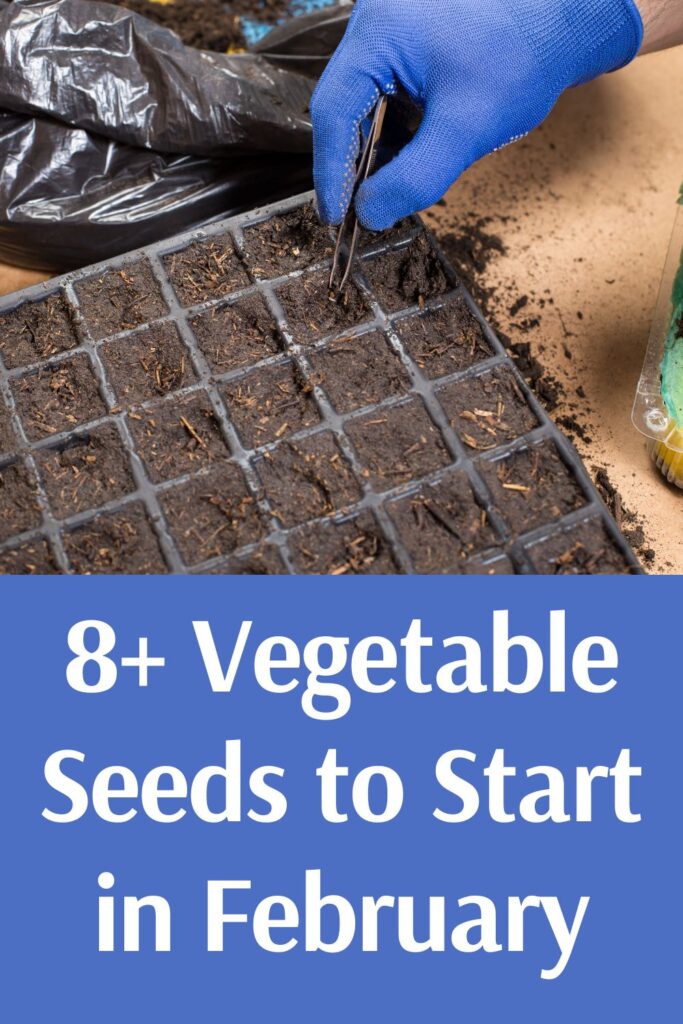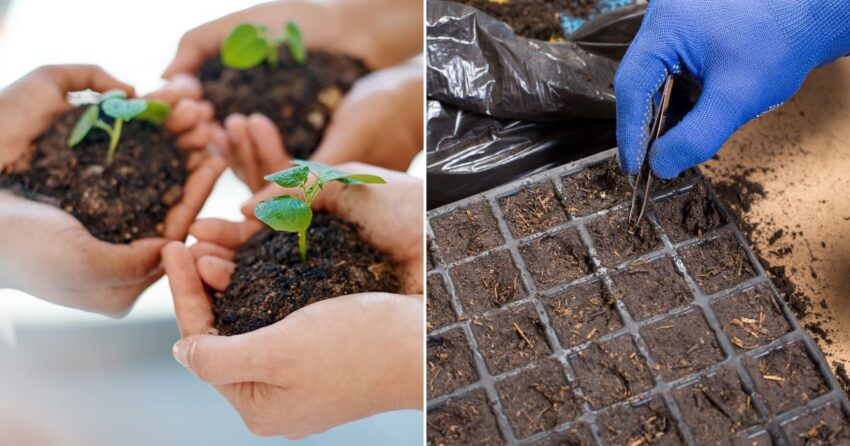As the cold winter months gradually transition into the promise of spring, gardeners and enthusiasts eagerly prepare to embrace the upcoming gardening season. February marks a critical time for gardeners to kickstart their efforts by sowing the seeds of anticipation and hope. While it may seem early to begin planting, this is the perfect time to get a head start on your vegetable garden. In this article, we’ll explore 8+ vegetable seeds that you can start in February, ensuring a flourishing garden and a delicious harvest in the months to come.
-
Peas (Pisum sativum)
February provides an excellent window of opportunity to sow pea seeds. These cool-season vegetables thrive in temperatures between 40°F to 75°F (4°C to 24°C). By planting them early, you’ll enjoy sweet, tender peas in late spring or early summer.
-
Spinach (Spinacia oleracea)
Spinach is a nutritional powerhouse, and it’s well-suited for early planting in February. It prefers cooler temperatures and can withstand frost, making it an ideal choice for early spring salads and green smoothies.
-
Lettuce (Lactuca sativa)
Lettuce is another cold-hardy crop that can be started in February. With a variety of leaf types and colors to choose from, you can have fresh salads throughout the growing season.
-
Radishes (Raphanus sativus)
Radishes are one of the fastest-growing vegetables, and they can be ready to harvest in as little as 20-30 days. Sow radish seeds in February for a quick and satisfying early crop.
-
Carrots (Daucus carota)
Carrots may take a bit longer to mature, but they’re well worth the wait. Planting carrot seeds in February will ensure a harvest of sweet, crisp roots in late spring or early summer.
-
Beets (Beta vulgaris)
Beets are versatile and can be used in salads, roasted, or pickled. Planting beet seeds in February allows you to enjoy their earthy flavors and vibrant colors later in the season.
-
Broccoli (Brassica oleracea var. italica)
Broccoli is a cold-tolerant vegetable that can withstand chilly temperatures. Starting broccoli seeds in February will lead to a productive harvest of nutritious florets in late spring.
-
Onions (Allium cepa)
Onions are a staple in many dishes and can be grown from seeds or sets. Starting onion seeds indoors in February gives them a head start, ensuring larger bulbs and a longer growing season.
-
Cabbage (Brassica oleracea var. capitata)
Cabbage is another cold-loving vegetable that can be planted in February. You can grow various types, from green to red, for use in coleslaw, sauerkraut, or stir-fries.
-
Brussels Sprouts (Brassica oleracea var. gemmifera)
For those who love Brussels sprouts, starting seeds indoors in February is a wise choice. These vegetables thrive in cooler weather and taste sweeter after a light frost.
Conclusion
Getting a jumpstart on your vegetable garden in February can be a rewarding experience. By planting the right seeds early, you’ll be well on your way to a diverse and plentiful harvest. Remember to consider your local climate and the specific planting recommendations for each vegetable. With proper care and attention, you’ll enjoy the fruits (or rather, vegetables) of your labor throughout the growing season, and your garden will flourish with an abundance of fresh, homegrown produce. So, roll up your sleeves, gather your seeds, and prepare for a bountiful and delicious garden this year. Happy gardening!

Read also: Mastering Christmas Cactus Pruning: Why, When, and How

